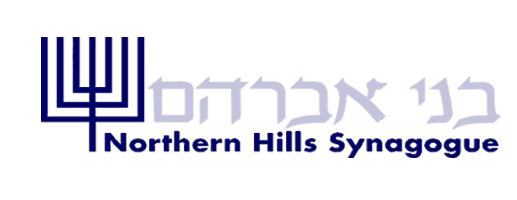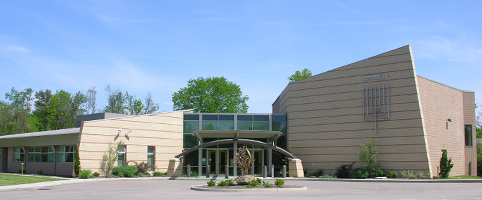The Historical Background of Hanukkah
After the conquest of the "southern kingdom" of Judah by the Babylonians under Nebukhadnezzar in 586 BCE, and the destruction of the First Temple, the Land of Israel passed from one foreign ruler to another. The Babylonians were displaced by the Persians, who allowed the Jews to return to Eretz Yisrael and to achieve local autonomy under the leadership of the High Priests, and the Persians were displaced by the Greeks and Macedonians led by Alexander the Great.
After the death of Alexander in 323 BCE, Eretz Yisrael was the object of conflict between the Ptolemies of Egypt and the Selucids of Syria, Greek successors of Alexander who vied for control of parts of his empire. The Jewish population was divided into pro-Egyptian and pro-Syrian factions, and a rumor that the Syrian ruler Antiochus Epiphanes had been killed in battle led to an uprising of the pro-Egyptian faction in 168 BCE. The rumor proved to be false, and Antiochus instituted a regime of harsh repression in Judea.
This regime had three aims: to extort more money from the province for the royal treasury, to crush the tendency of the Jews to rebellion, and to include Judaea more securely in the Hellenistic cultural sphere. In this last point, Antiochus had the support of many Jews, who contrasted the universal and sophisticated Greek culture with the traditional culture of Judaea, based on the Torah, a culture which seemed narrow, backward, and provincial.
The excesses of the Greek-Syrian army, which prohibited the observance of the Sabbath and of circumcision, forced people to eat forbidden food, and, ultimately, conducted idolatrous worship in the Temple in Jerusalem, fanned the flames of rebellion. A popular army led by members of the Hasmonean family, kohanim from the town of Modiin, defeated much larger Syrian forces. The patriarch of the family was Mattityahu, but it was his sons who led the armed revolt, and one of them, Judah, acquired the nickname “Maccabee”, “the Hammer”. On the twenty-fifth day of Kislev, 165 BCE, the Temple in Jerusalem was rededicated, and, ultimately, the Hasmoneans were able to re-establish an independent Jewish state.
The Miracle of the Oil
What is missing in this historical account? The well-known story of the oil for the Temple lamps. This story is found in the Talmud (Shabbat 21b)
What is the reason for Hanukkah? Our rabbis taught that on the 25th of Kislev begin the days of Hanukkah, which are eight on which a lamentation for the dead and fasting are forbidden. For when the Greeks entered the Temple, they defiled all the oils therein and when the Hasmonean dynasty prevailed against and defeated them, they searched and found only one jug of oil which had the seal of the High Priest intact, but which contained sufficient oil for one day's lighting only; yet a miracle was performed there, and they lit the lamp for eight days. The following year these days were appointed a Festival with the recital of Hallel and thanksgiving.
The Talmudic sages, disenchanted with the Jewish political leaders, de-emphasized the military exploits of the Hasmoneans and fastened on the story of the oil as their explanation of Hanukkah.
The Jewish attitude toward miracles is ambivalent. Our religious tradition leaves no doubt that God sometimes intervenes in human affairs in surprising ways. At the same time, we are cautioned not to wait passively and expect God to save us through a miracle. We learn that when the Israelites stood on the banks of the Red Sea, the waters did not part until, led by Nahshon ben Aminadav, they plunged in. "God helps those who help themselves" could well be a Jewish saying.
The Meaning of Hanukkah
In modern times Hanukkah has been interpreted generally in one of two ways. In America it has been seen as the festival of religious freedom, and in Israel (and in Jewish nationalist circles generally) as a celebration of national independence, with the Hasmoneans as forerunners of the builders of modern Israel. Neither of these explanations is entirely adequate. The Hasmoneans fought, not for the principle of religious liberty, but for the Torah, for Judaism; their struggle was against the Hellenizing Jews (in our terms, assimilationists) as much as it was against the Syrians.
We may learn from this struggle the importance of religious liberty, but it is legitimate to draw this lesson only if we also strengthen our devotion to our particular religion, Judaism. The purely national interpretation of Hanukkah was explicitly rejected by our sages, who excluded the Books of the Maccabees from canonical (officially recognized) Scripture, and instituted as the reading from the prophets on the Shabbat of Hanukkah a selection from Zekhariah which includes the words "Not by power, and not by force, but by My spirit, says the Lord". Rather, Hanukkah teaches us of the inseparable bond between Jewish nationality and Jewish religion, and of the need for courage and determination in defending both.
The Observance of Hanukkah
The main observance of Hanukkah is the lighting of candles or oil lights, which recalls the kindling of the light in the Temple at the time of its rededication. There are various customs regarding the manner of kindling the Hanukkah lights, but the most widely practiced is the following:
1) On the first night, one light is lit, on the second night, two, etc.
2) We place the first light at the extreme right of the menorah (as we face it), and add the new lights to the left.
3) We light the newest light first, and proceed to the right.
4) The Hanukkah lights should be placed where they will be seen by the largest number of people, as, for example, in a window facing the street. This practice follows from the reason for lighting the lights, which is pirsomey nisa, publicizing the miraculous story of Hanukkah.
5) The lights should not be lit until three stars are visible (about 40 minutes after sunset), but should be lit as soon as possible after that time. If all the members of the family will not be home until later in the evening, then one may wait until that time. If circumstances demand, the lights may be lit a litter earlier than the preferred time.
6) On Friday night, the Hanukkah lights must be lit before the Sabbath candles. It is proper to use larger candles on this night, so that the Hanukkah lights will burn through the normal time for their kindling, 40 minutes after sunset.
7) On Saturday night the Hanukkah lights should be lit before havdalah, but after maariv (the evening service).
8) Before kindling the lights we say the blessings:
Barukh atta Adonai, Eloheinu melekh ha-olam, asher kid’shanu b'mitsvotav vitsivanu l'hadlik ner shel Hanukkah.
(Praised are You, Lord our God, Ruler of the Universe, who has made us holy with His commandments, commanding us to kindle the Hanukkah light)
Barukh atta Adonai, Eloheinu melekh ha-olam, she-asa nisim la-avoteinu, bayamim haheim baz'man hazeh.
(Praised are You, Lord our God, Ruler of the Universe, who performed miracles for our ancestors in their time, at this season)
On the first night only, we recite:
Barukh atta Adonai, Eloheinu melekh ha-olam, she-heheyanu, v'kiy’manu v'higianu laz'man hazeh.
(Praised are You, Lord our God, Ruler of the Universe, who has kept us alive, and sustained us, and enabled us to reach this season.)
In the synagogue, Hallel (psalms of praise) are recited on Hanukkah, and Numbers 7, the portion of the Torah which deals with the dedication of the first sanctuary in the wilderness is read (This portion is divided into eight sections, one for each day of Hanukkah).
In the Amidah, and in Birkat Hamazon, we insert Al hanisim, a passage which tells the story of Hanukkah.
Since the traditional story of Hanukkah turns upon a question of oil, it is the custom to eat foods fried in oil, notably potato latkes. Card games and gambling (as in the dreydel game) normally frowned upon by Judaism, are regarded with a more benign eye during Hanukkah.

